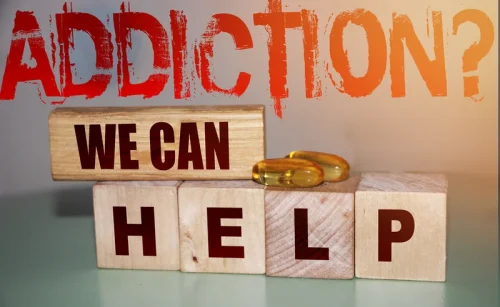
Expressive therapies provide healthy, and often nonverbal, outlets for the expression of negative and difficult emotions. Finally, support groups provide encouragement and hope for recovery. Drinking may also be a method to self-medicate negative emotions, including anger.
Personality and the Propensity to Become Aggressive When Intoxicated
- The same can be said for alcohol use, regardless of whether it’s moderate or heavy use.
- At first, alcohol can increase the levels of neurotransmitters like dopamine and serotonin.
- If you find cessation of alcohol to be more difficult than you can manage alone, Dr. Willeumier encourages you to seek out help.
- An angry person tends to seek out stimuli that activate feelings of anger.
Some studies highlight the impairment caused by alcohol consumption on processing emotional faces. They first consumed alcohol and were asked to recognize the emotions of different faces on a computer task. Specifically, they exhibited a reduced capacity to detect sadness and fear and a reduced tendency towards seeing happiness. While the study did not support a significant https://ecosoberhouse.com/article/how-to-stop-alcohol-shakes-tremors/ difference between groups high and low in anger, these results support the notion that such impairment in facial recognition may contribute to aggressive responding. Mood stabilizers, antidepressants, or anti-anxiety medications can all help to regulate and control negative emotions, during both detox and treatment for anger management and alcohol addiction.
How is alcohol withdrawal diagnosed?
Mood changes are a normal part of life, especially when you are going through a lot of stress. Sometimes, however, the changes in mood, sleep pattern, activity levels and behavior can be a sign of a mental health disorder. However, a person’s risk for depression is increased during these times, as well, so mood swings also can be a sign of a mental health condition. Toddlers and young children often appear “moody” and may throw tantrums as they learn to regulate their emotions. While these changes are generally a normal part of emotional development, mood swings in children also can be a sign of an underlying mental health disorder, learning disability, or even a physical ailment.

Borderline personality disorder
They may experience altered perceptions and intensified emotions, such as jealousy, anger, and depression. Furthermore, alcohol may cause unpredictable mood swings, decreased inhibition, a false sense of confidence, increased aggression, feelings of worthlessness, and suicidal depression. The rate of suicide among alcoholics is twice as high as that of the general population. The findings alcoholism and anger should be considered within the context of the study’s limitations. Future researchers should test the study hypotheses with more racially diverse, less educated, non-college, and clinical samples to either replicate or refute the study findings and potentially increase generalizability. Second, the current study was limited to self-report data, which could create bias in responding.
Drugs and mental health
It’s important to transition off of medication with medical supervision. Avoid decreasing or discontinuing use before you can consult your healthcare professional. Shifts in mood that do not affect your day-to-day life on a regular basis are generally considered typical.
He is a Captain in the Army Reserves and has 15 years of military service.
How Does Alcohol Affect Your Brain And Mood?
- Those in recovery from alcohol abuse may not feel the need for recovery if they are a “functional alcoholic” whose drinking doesn’t appear to disrupt daily life.
- Likewise, hostility is an attitude of resentment and unfriendliness that doesn’t require feelings of anger.
- It’s equally important that psychotherapists highlight this interaction both with clients who consume alcohol and those in relationships with them.
- However, the biggest contributors to mood swings include diet, sleep, and substance abuse.
- With this disorder, an unstable mood state in which people experience hypomania and mild depression may last for two years or longer.
- While it may seem like anger is the most common emotion caused by alcohol, it may not be that straightforward.
- The study included 67 undergraduate men who were currently dating someone.
According to the Substance Abuse and Mental Health Services Administration (SAMHSA), nearly 8 million adults in the United States struggled with both a mental health disorder and addiction in 2014. When a person struggles with both alcohol addiction and anger management problems, the issues exacerbate each other. As alcohol impacts a person’s personality and mood, they may come off like “Dr.

Intermittent explosive disorder involves repeated, sudden bouts of impulsive, aggressive, violent behavior or angry verbal outbursts. Road rage, domestic abuse, throwing or breaking objects, or other temper tantrums may be symptoms of intermittent explosive disorder. Another study of 249 heavy drinkers similarly found that alcohol intoxication predicted higher levels of IPV in those who reported low psychological flexibility (Grom et al., 2021). Identifying those factors that might contribute to heightened anger when consuming alcohol is important for individuals who have anger issues and those who treat them. Increasingly, research offers answers to determine this interaction. Consuming alcohol can serve as a distraction from a range of negative feelings, including anger.

For example, many people drink alcohol when they are depressed as a means to make themselves more happy or lighthearted. On the other hand, many people abuse alcohol to soothe anxiety and calm their nerves. While psychotherapy is the primary approach for co-treatment of alcohol use and anger management, medications like mood stabilizers and those used to treat substance withdrawal may also be part of your treatment plan. It’s common for alcohol and anger to be stereotypically lumped together, but many people labeled “angry” while drinking may actually be experiencing aggression or hostility. “Chronic alcohol consumption can increase the risk of depression, dementia, cirrhosis of the liver, cancer, high blood pressure, seizures, and stroke, so be mindful of your consumption habits,” says Dr. Willeumier. “Alcohol is a powerful drug, so if you find yourself unable to control your consumption, please seek help with a qualified therapist or addiction treatment center.”

Scrivi un commento